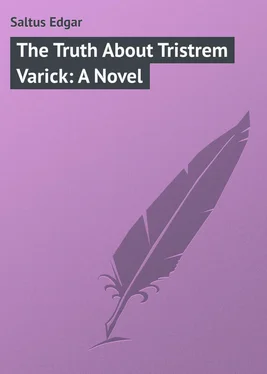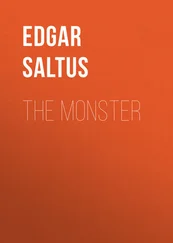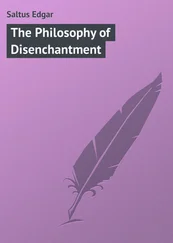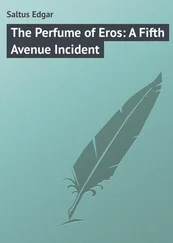Edgar Saltus - The Truth About Tristrem Varick - A Novel
Здесь есть возможность читать онлайн «Edgar Saltus - The Truth About Tristrem Varick - A Novel» — ознакомительный отрывок электронной книги совершенно бесплатно, а после прочтения отрывка купить полную версию. В некоторых случаях можно слушать аудио, скачать через торрент в формате fb2 и присутствует краткое содержание. Жанр: foreign_prose, на английском языке. Описание произведения, (предисловие) а так же отзывы посетителей доступны на портале библиотеки ЛибКат.
- Название:The Truth About Tristrem Varick: A Novel
- Автор:
- Жанр:
- Год:неизвестен
- ISBN:нет данных
- Рейтинг книги:4 / 5. Голосов: 1
-
Избранное:Добавить в избранное
- Отзывы:
-
Ваша оценка:
- 80
- 1
- 2
- 3
- 4
- 5
The Truth About Tristrem Varick: A Novel: краткое содержание, описание и аннотация
Предлагаем к чтению аннотацию, описание, краткое содержание или предисловие (зависит от того, что написал сам автор книги «The Truth About Tristrem Varick: A Novel»). Если вы не нашли необходимую информацию о книге — напишите в комментариях, мы постараемся отыскать её.
The Truth About Tristrem Varick: A Novel — читать онлайн ознакомительный отрывок
Ниже представлен текст книги, разбитый по страницам. Система сохранения места последней прочитанной страницы, позволяет с удобством читать онлайн бесплатно книгу «The Truth About Tristrem Varick: A Novel», без необходимости каждый раз заново искать на чём Вы остановились. Поставьте закладку, и сможете в любой момент перейти на страницу, на которой закончили чтение.
Интервал:
Закладка:
The Truth About Tristrem Varick: A Novel
I
It is just as well to say at the onset that the tragedy in which Tristrem Varick was the central figure has not been rightly understood. The world in which he lived, as well as the newspaper public, have had but one theory between them to account for it, and that theory is that Tristrem Varick was insane. Tristrem Varick was not insane. He had, perhaps, a fibre more or a fibre less than the ordinary run of men; that something, in fact, which is the prime factor of individuality and differentiates the possessor from the herd; but to call him insane is nonsense. If he were, it is a pity that there are not more lunatics like him.
It may be that the course of conduct which he pursued in regard to his father's estate served as basis to the theory alluded to. At the time being, it created quite a little stir; it was looked upon as a piece of old-world folly, an eccentricity worthy of the red-heeled days of seigneurial France, and, as such, altogether out of place in a money-getting age like our own. But it was not until after the tragedy that his behavior in that particular was brought up in evidence against him.
The facts in the case were these: Tristrem's father, Erastus Varick, was a man of large wealth, who, when well on in the forties, married a girl young enough to be his daughter. The lady in question was the only child of a neighbor, Mr. Dirck Van Norden by name, and very pretty is she said to have been. Before the wedding Erastus Varick had his house, which was situated in Waverley Place, refurbished from cellar to garret; he had the parlor – there were parlors in those days – fitted up in white and gold, in the style known as that of the First Empire. The old Dutch furniture, black with age and hair-cloth, was banished. The walls were plastered with a lime cement of peculiar brilliance. The floors of the bedrooms were carpeted with rugs that extended under the beds, a novelty in New York, and the bedsteads themselves, which were vast enough to make coffins for ten people, were curtained with chintz patterns manufactured in Manchester to frighten children. In brief, Erastus Varick succeeded in making the house even less attractive than before, and altogether acted like a man in love.
After three years of marriage, Tristrem was born and Mrs. Varick died. The boy had the best of care and everything that money could procure. He was given that liberal education which usually unfits the recipient for making so much as his bread and butter, and at school, at college, and when he went abroad his supply of funds was of the amplest description. Shortly after his return from foreign lands Erastus Varick was gathered to his fathers. By his will he bequeathed to Tristrem a Panama hat and a bundle of letters. The rest and residue of his property he devised to the St. Nicholas Hospital. The value of that property amounted to seven million dollars.
Now Dirck Van Norden had not yet moved from the neighborhood to a better place. Tristrem was his only grandson, and when he learned of the tenor of the will, he shook his fist at himself in the looking-glass and swore, in a bountiful old-fashioned manner which was peculiar to him, that his grandson should not be divested of his rights. He set the lawyers to work, and the lawyers were not long in discovering a flaw which, through a wise provision of the legislature, rendered the will null and void. The Hospital made a bold fight. It was shown beyond peradventure that from the time of Tristrem's birth the intention of the testator – and the intention of a testator is what the court most considers – had been to leave his property to a charitable institution. It was proved that he had made other wills of a similar character, and that he had successively destroyed them as his mind changed in regard to minor details and distributions of the trust. But the wise law was there, and there too were the wise lawyers. The decision was made in accordance with the statute, and the estate reverted to Tristrem, who then succeeded in surprising New York. Of his own free will he made over the entire property to the account of the Hospital to which it had been originally devised, and it was in connection with that transfer that he was taxed with old-world folly. But the matter was misunderstood and afterward forgotten, and only raked up again when the press of two continents busied itself with his name. At that time he was in his twenty-fifth or twenty-sixth year.
He was slender, of medium height, blue of eye, and clear-featured. His hair, which was light in color, he wore brushed upward and back from the forehead. When he walked, it was with a slight stoop, which was the more noticeable in that, being nearsighted, he had a way of holding his chin out and raising his eyebrows as though he were peering at something which he could not quite discern. In his face there was a charm that grew and delighted and fastened on the beholder. At the age of twenty-six he would have been recognized by anyone who had known him as a boy. He had expanded, of course, and a stoop and dimness of vision had come with years; but in his face was the same unmistakable, almost childish, expression of sweet good-will.
His school-days were passed at Concord. When he first appeared there he looked so much like a pretty girl, in his manner was such gentleness, and his nature was found to be so vibrant and sensitive, that his baptismal name was promptly shortened into Trissy. But by the time he reached the fourth form it was lengthened back again to its rightful shape. This change was the result of an evolution of opinion. One day while some companions, with whom he happened to be loitering, scurried behind a fence, he stopped a runaway horse, clinging to the bridle though his arm had been dislocated in the earliest effort. Another time, when a comrade had been visited, unjustly it appeared, with some terrible punishment – five hundred lines, perhaps, or something equally direful – Tristrem made straight for the master, and argued with him to such effect that the punishment was remitted. And again, when a tutor asked how it was that there was no W in the French language, Tristrem answered, "Because of Waterloo."
Boys are generous in their enthusiasms; they like bravery, they are not deaf to wit, but perhaps of all other things they admire justice most. And Tristrem seemed to exhale it. It is said that everyone has a particular talent for some one thing, whether for good or evil, and the particular talent which was accorded to Tristrem Varick was that of appreciation. He was a born umpire. In disputes his school-fellows turned to him naturally, and accepted his verdict without question. When he reached the altitudes which the Upper School offers, no other boy at St. Paul's was better liked than he. At that time the form of which he was a member – and in which, parenthetically, he ranked rather low – was strengthened by a new-comer, a turbulent, precocious boy who had been expelled from two other schools, and with whom, so ran the gossip, it would go hard were he expelled again. His name was Royal Weldon, and on his watch, and on a seal ring which he wore on his little finger, he displayed an elaborate coat-of-arms under which for legend were the words, Well done, Weldon , words which it was reported an English king had bawled in battle, ennobling as he did so the earliest Weldon known to fame.
Between the two lads, and despite the dissimilarity of their natures, or perhaps precisely on that account, there sprang up a warm friendship which propinquity cemented, for chance or the master had given them a room in common. At first, Tristrem fairly blinked at Weldon's precocity, and Weldon, who was accustomed to be admired, took to Tristrem not unkindly on that account. But after a time Tristrem ceased to blink and began to lecture, not priggishly at all, but in a persuasive manner that was hard to resist. For Weldon was prone to get into difficulties, and equally prone to make the difficulties worse than they need have been. When cross-questioned he would decline to answer; it was a trick he had. Now Tristrem never got into difficulties, except with Latin prosody or a Greek root, and he was frank to a fault.
Читать дальшеИнтервал:
Закладка:
Похожие книги на «The Truth About Tristrem Varick: A Novel»
Представляем Вашему вниманию похожие книги на «The Truth About Tristrem Varick: A Novel» списком для выбора. Мы отобрали схожую по названию и смыслу литературу в надежде предоставить читателям больше вариантов отыскать новые, интересные, ещё непрочитанные произведения.
Обсуждение, отзывы о книге «The Truth About Tristrem Varick: A Novel» и просто собственные мнения читателей. Оставьте ваши комментарии, напишите, что Вы думаете о произведении, его смысле или главных героях. Укажите что конкретно понравилось, а что нет, и почему Вы так считаете.












